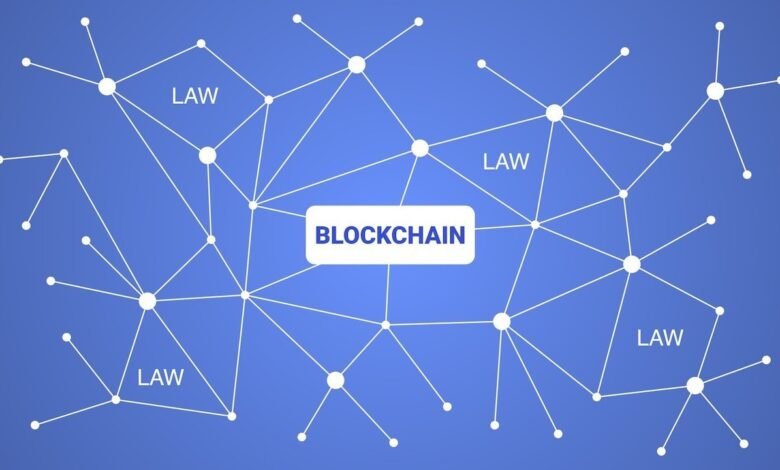The Impact of Blockchain Technology on Contract Law in 2023

Blockchain technology has been transforming various industries, and its impact on contract law is profound. As we delve into 2023, the advancements in blockchain continue to revolutionize the way contracts are drafted, executed, and enforced. This article explores the pivotal role of blockchain technology in shaping contract law and its potential implications on legal processes.
Understanding Blockchain Technology
What is Blockchain Technology?
Blockchain is a decentralized, distributed ledger that records transactions across multiple computers in a secure and transparent manner. Each block in the chain contains a timestamp and a cryptographic link to the previous block, ensuring immutability and transparency.
How Blockchain Works
When a new transaction occurs, it is verified by network participants through consensus mechanisms like proof-of-work or proof-of-stake. Once verified, the transaction is added as a new block to the chain, creating a permanent and tamper-proof record.
Blockchain in Contract Law
Smart Contracts
Smart contracts are self-executing agreements with the terms of the contract directly written into code. These contracts execute automatically when the conditions specified within the code are met, eliminating the need for intermediaries.
Immutability and Security
Blockchain’s immutable nature ensures that once a contract is recorded on the chain, it cannot be altered or deleted. This feature enhances the security and reliability of contracts, reducing the risk of fraudulent activities.
Reducing Fraud and Disputes
The transparency provided by blockchain minimizes disputes between parties. All stakeholders can access a single version of the truth, reducing the chances of misunderstandings and fraudulent claims.
Blockchain’s Impact on Contract Execution
Transparency and Accountability
With blockchain, all parties involved in a contract can view the contract’s progress and status in real-time. This level of transparency fosters accountability and trust between stakeholders.
Automated Processes
Blockchain enables the automation of contract execution. Once predefined conditions are met, the contract is automatically executed without the need for manual intervention, streamlining processes and saving time.
Smart Contracts and Legal Enforcement
Legal Recognition of Smart Contracts
While blockchain-based smart contracts offer numerous advantages, their legal recognition varies across jurisdictions. Some countries have passed laws recognizing smart contracts, while others are still in the process of developing regulations.
Challenges and Opportunities
The adoption of smart contracts presents both challenges and opportunities for the legal industry. Ensuring compatibility with existing legal systems and resolving disputes arising from smart contracts are among the main challenges.
Blockchain and Intellectual Property Rights
Digital Rights Management
Blockchain can revolutionize digital rights management by providing transparent ownership records and facilitating licensing processes.
Provenance and Authenticity
Blockchain’s ability to track the origin and ownership of assets ensures the authenticity of intellectual property rights, reducing the risk of infringement and plagiarism.
Data Privacy and Consent Management
Decentralized Identity Solutions
Blockchain enables the creation of decentralized identity solutions, allowing individuals to control and manage their personal data securely.
Personal Data Protection
By encrypting personal data and providing clear consent mechanisms, blockchain enhances data privacy, complying with regulations like GDPR.
Blockchain Dispute Resolution Mechanisms
Online Dispute Resolution
Blockchain can facilitate online dispute resolution by providing an immutable record of transactions and communications.
Cross-Border Disputes
Blockchain’s decentralized nature offers a promising solution for cross-border disputes, eliminating jurisdictional complexities.
Regulatory and Legal Challenges

The Rise of Digital Contracts
The advent of technology has revolutionized the way contracts are formed, executed, and enforced. Digital contracts, often facilitated through blockchain technology, provide efficiency and transparency. However, these advancements also raise concerns about data privacy, security, and the enforceability of digital signatures.
Smart Contracts and Automation
Smart contracts, self-executing contracts with the terms directly written into code, offer unparalleled automation and efficiency. However, they require precise drafting and coding, leaving room for potential vulnerabilities and disputes arising from coding errors.
Cross-Border Contracting
Globalization has led to an increase in cross-border contracts, but this expansion comes with its own set of challenges. Differing legal systems, language barriers, and cultural variations can create complexities in interpreting and enforcing international contracts.
Data Protection and Privacy Laws
The growing concern over data protection and privacy impacts how contracts are structured and executed. Companies must adhere to stringent data protection laws, which can significantly affect contract terms, especially in industries dealing with sensitive data.
Force Majeure and Unexpected Events
The year 2023 saw its fair share of unforeseen events that disrupted contractual obligations. From natural disasters to global pandemics, force majeure clauses and their interpretation become pivotal in determining the parties’ rights and responsibilities during unexpected events.
The Gig Economy and Freelance Contracts
The rise of the gig economy has led to a surge in freelance contracts. The challenge lies in ensuring that these independent contractors receive fair treatment, proper classification, and appropriate legal protection under their contractual arrangements.
Intellectual Property Rights and Licensing
Contracts involving intellectual property rights and licensing agreements are becoming increasingly complex. Innovations in various fields demand precise contractual terms to safeguard the creators’ rights while allowing for the sharing of knowledge.
E-Commerce and Consumer Protection
With the booming e-commerce industry, consumer protection becomes a crucial aspect of contract law. Ensuring fair terms of service and transparent policies is vital for maintaining trust between businesses and their customers.
Navigating Dispute Resolution
Disputes are an inevitable part of contract law. In 2023, alternative dispute resolution methods, such as mediation and arbitration, gained prominence for their efficiency and cost-effectiveness in resolving contractual conflicts.
Regulatory Compliance and Corporate Contracts

Corporate contracts require meticulous attention to regulatory compliance. Navigating through intricate legal frameworks while adhering to industry-specific regulations becomes a paramount challenge for businesses.
Environmental and Sustainability Clauses
The heightened focus on environmental sustainability translates into the inclusion of eco-friendly clauses in contracts. Businesses are increasingly under pressure to incorporate environmentally responsible practices into their contractual obligations.
Contract Negotiation and Drafting Skills
In an ever-changing legal landscape, the demand for skilled contract negotiators and drafters is on the rise. The ability to anticipate challenges and address potential loopholes is essential for crafting robust contracts.
Technological Advancements in Contract Management
Contract management tools and software have proliferated in 2023, streamlining the contract lifecycle. However, staying updated on the latest technology while ensuring security remains a challenge for contract management professionals.
Insurance and Indemnity in Contracts
The use of insurance and indemnity clauses in contracts is increasing to protect parties from potential risks. However, ensuring adequate coverage and addressing exclusions can be intricate processes.
The Role of Artificial Intelligence in Contract Review
Artificial intelligence is transforming the contract review process by automating document analysis. Nonetheless, maintaining human oversight and ensuring AI’s accuracy pose challenges in this evolving landscape.
Jurisdictional Issues
The cross-border nature of blockchain raises challenges concerning which legal jurisdiction governs transactions and disputes.
Compliance and Regulatory Framework
Establishing a robust regulatory framework is essential to address concerns related to anti-money laundering (AML) and know-your-customer (KYC) compliance.
Future Prospects and Adoption Challenges
Integration with Existing Systems
The integration of blockchain with legacy systems requires careful planning and implementation to ensure seamless functioning.
Education and Awareness

Promoting awareness and educating stakeholders about blockchain’s potential and risks will be critical for successful adoption.
Conclusion
In 2023, blockchain technology is poised to transform contract law fundamentally. Smart contracts, transparency, automation, and data privacy are revolutionizing the way contracts are executed and enforced. While challenges remain, the potential benefits of blockchain in contract law are immense, promising a more secure, efficient, and reliable legal landscape.
Read more : Best 20 Budget-Friendly Countries to Visit in the World 2023
FAQs
How does blockchain ensure the security of contracts?
Blockchain’s decentralized and immutable nature ensures that once a contract is recorded, it cannot be altered or deleted, providing a high level of security.
Can smart contracts be legally enforced everywhere?
The legal recognition of smart contracts varies across jurisdictions, with some countries already passing legislation to recognize them.
What are the main challenges in adopting blockchain in contract law?
The main challenges include legal recognition, compatibility with existing systems, and resolving disputes arising from smart contracts.
Are blockchain-based contracts legally recognized globally?
Blockchain-based contracts are not universally recognized yet, as the legal recognition depends on the regulatory framework in each jurisdiction.
How does blockchain improve transparency in contract execution?
Blockchain enables real-time visibility of contract progress and status for all parties involved, enhancing transparency and accountability.
Read more : 10 Best Apple Charger Lawsuits







